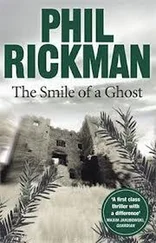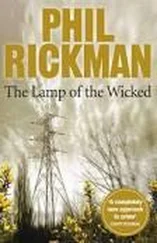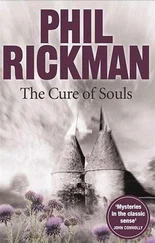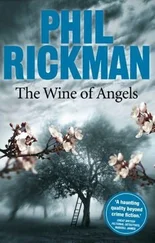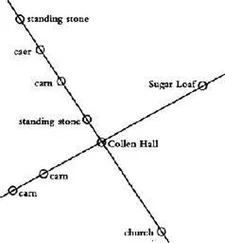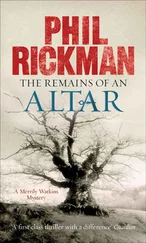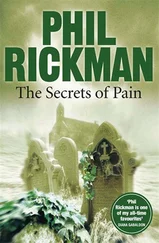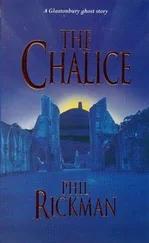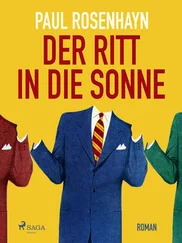Did Dudley prefer to ride at the head of the company because he was disinclined to be surrounded by unknown men with no cause to wish him a long life?
Unknown armed men. I flinched as a vision of the imagination ripped through me: riders all bunched together and then separating, leaving one man dangling from his horse, dragged by a boot in the stirrup through a river of his own blood.
And the next to die… the next would be me? The infamous conjuror said to trade with demons who would, if Ferrers and Legge had succeeded, have gone to ashes five years ago. Dear God, if I’d dwelt on this for long enough, I might have turned my horse around and galloped like a madman back into the heart of England.
Too late now. As if dropped from the sky, the city of Hereford was strewn about us, a damp untidiness of fenced fields and holdings and timbered shops and dwellings around a triangle of high-spired churches. A frontier town.
And a frontier in my life. I felt now, as I had these past three days, to be on an ill-made road leading not to the roots of my family but into somewhere far more foreign than France or the Low Countries, for at least I could speak their languages.
Guiding my mare between foot-deep puddles and mounds of rubble which had once been part of the old walls, I followed the train into a wide street, where people were gathered to watch us. One spired church lay behind us, the cathedral ahead, the last one in England. On the rim of twilight, its stones glowed the colour of the shewstone Elias had unveiled before Goodwife Faldo.
I thought of the Wigmore stone and could no longer understand how the desire for it had lured me here. There were surely other stones to be found, as potent as this one.
Across the famous River Wye, a long line of hills lay on the western horizon. The Mynydd Ddu – Black Mountains. Where Wales began. The light from a now-invisible setting sun had bled into a symmetry of cloud which hung above these mountains like half-folded wings. Gilded feathers in a holy light. As we rode on, they came apart.
XVIII
Transcending the Mapper’s Craft
We lodged that night with the Bishop of Hereford at his palace by the eastern bank of the Wye, deep and fast-flowing after this drear summer of persistent rain.
As ever, in a city new to me, I would have welcomed time alone to uncover its libraries and antiquities. I’d marked the once-proud Norman castle falling into ruin, as Leland had hinted in his Itinerary : greenery up the walls, parts of the tower gone to rubble, sheep grazing the one-time courtyards. Why am I ever drawn to ruins?
But no time for closer study. Salmon had been brought up from the Wye for our evening meal in two sittings in a near-monastic, white-walled refectory. As ever, it was polite but unjovial, most of us tired and aching from the ride. The talk was of little more than hunting, and, as soon as I could slip away, I did. Suppressing fatigue, I cornered one of the canons and asked if I might speak with the bishop.
His name was John Scory, once Protestant Bishop of Chichester, deprived of his status in Mary’s reign, redeemed by Elizabeth. Yet sent out here into the wilderness, which seemed not much like redemption to me.
I was received into a crooked chamber with panelled walls of dark oak but no bookshelves. Only a Bible betwixt pen and ink and a wad of cheap paper on a narrow oaken trestle. A window was fallen open to the greying river.
Scory, plain-cassocked below his station, pulled out an uncushioned chair for me and went back behind his trestle, lit not by a candle but an old-fashioned rushlight. Possibly an indication of how brief he expected our discussion to be.
‘Forgive me, Dr Dee, but do I recall you as Bonner’s chaplain, once?’
For obvious reasons, this is not something I normally include in my curriculum vitae , particularly when dealing with Protestant bishops. I sought the short answer.
‘Better than being burned for heresy, Bishop.’
‘Oh, indeed. But why would Bonner choose to employ a man so narrowly spared from the flames? Do you mind the question?’
He was a wiry man of middle years, low-voiced for a bishop. He sat back in his chair, fixing on a pair of glasses as if fully to observe the quality of my response.
‘I believe,’ I said, ‘that this was to enable Bishop Bonner to tap into what I’d learned in… what you might call the outfields of divinity.’
‘Oh… keeping a pet magician ?’ In the sallow light, a wry smile was shaped in Scory’s lean face. ‘I do beg mercy, Dr Dee, but Bonner’s a man who holds fast to his beliefs. If he’d signed to the Queen he’d be back on the streets, and the fact that he didn’t and he isn’t…’
‘Suggests he feels safer living quietly behind bars,’ I said. ‘I wouldn’t pretend to understand him, but behind the history of terror there’s a questing mind. I… don’t know why, given his deplorable history, but I can find things in him to like. Which makes me wonder about myself.’
He peered at me through his glasses, then snatched them off, and a full smile at last broke through.
‘You’re clearly an honest young man, Dr Dee. As I’d heard. Also, it’s said, wondrous with numbers, more than conversant with the law, expert in geography, the arts of navigation…’ Scory’s eyebrows rose a fraction, and then he came forward, both elbows on the board. ‘So what are you doing in such alarming company?’
‘Alarming?’
‘Biggest bloody hanging-party I’ve ever seen in this part of the world.’
Scory fumbled in a locker under the board and produced a good candle which he held to the dying rushlight until it flared. Evidently, the discussion was not to be as brief as I’d expected.
* * *
Bishops have never been chosen for their nearness to God, but – unless, like Bonner, their working lives are over – most have kept close to prominent sinners. They’ll bully harmless parish priests without mercy but, in dealing with influential laity, ever walk on eggshells.
Not Scory. Curiously, he was proving to be a man who gave not a shit for status.
‘They’re hardly going to offer him an amnesty, Dr Dee.’
‘No,’ I said. ‘Erm… whom?’
‘Believed to be a certain Prys Gethin.’
‘Truly?’ I said.
I’d never heard of this man, though the similarity of his name to that of Owain Glyndwr’s general had not passed me by.
Scory was silent for quite a while. Through the opened window, I could hear a rising night-breeze on the river. Scory moved back from the candle to study me.
‘Why do I have the feeling that you don’t know what the hell I’m talking about?’
‘Ah…’ I shrugged uncomfortably. ‘That’s because I’m not part of the judicial company. Just a fellow traveller.’
‘More and more mysterious. So what do you want from me, Dr Dee? Why would the Queen’s advisor on all manner of extraordinary matters want to keep a tired old cleric from his bed?’
‘Well, assuming your diocese includes the town of Wigmore, in the west, I wanted to ask what you knew about the abbey there. Whatever might be left of it.’
‘Not much. Gone to ruin since the Reform, like most of them. The abbot’s house is become a private home.’
‘The abbot, yes,’ I said. The former abbot was called John Smart? What of him?’
‘I’ve only been here a year, therefore never encountered the man in person. Only by reputation.’ Scory wrinkled his nose. ‘Why do you want to know about Smart?’
‘I gather that after the Reform, he was reported to the late Lord Cromwell for a number of crimes.’
‘And that’s unusual?’
‘Simony, I heard. And lewd behaviour with local women. And misappropriation of abbey treasure?’
Читать дальше


